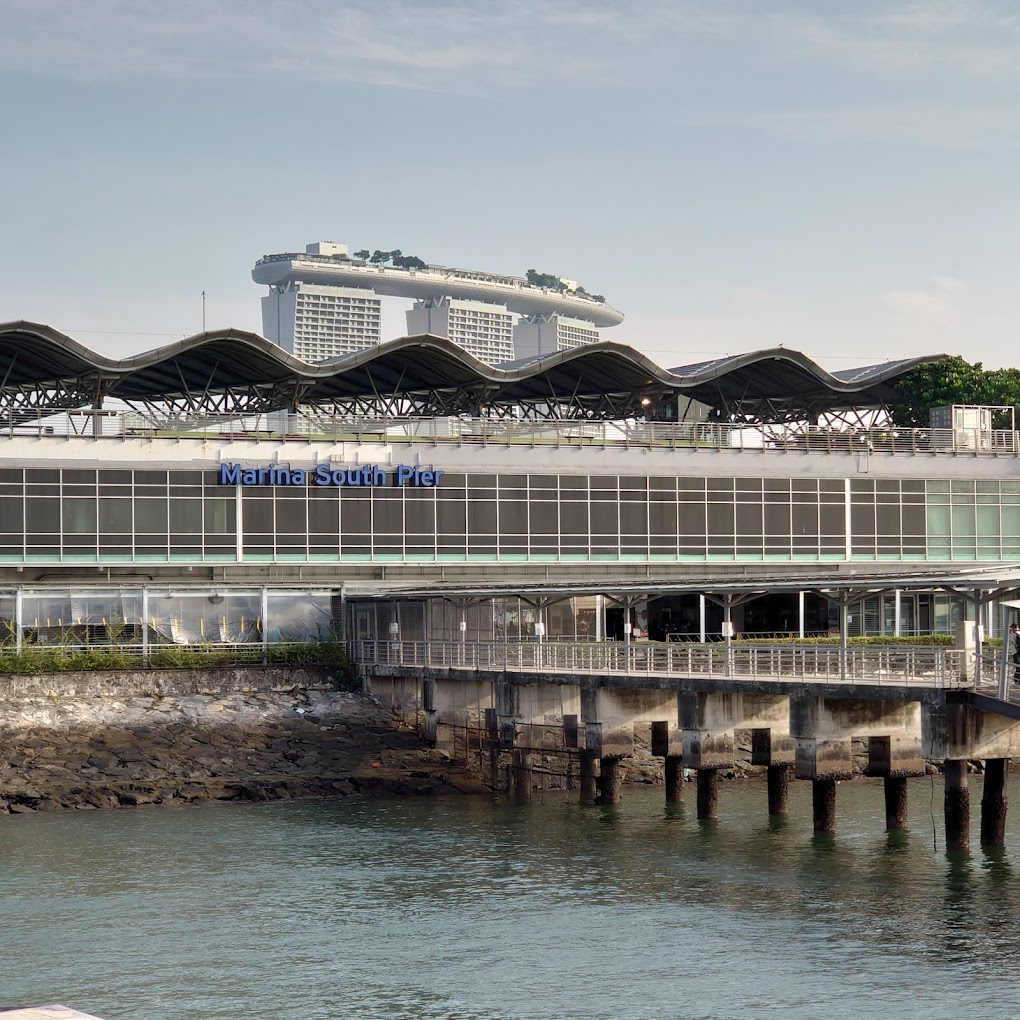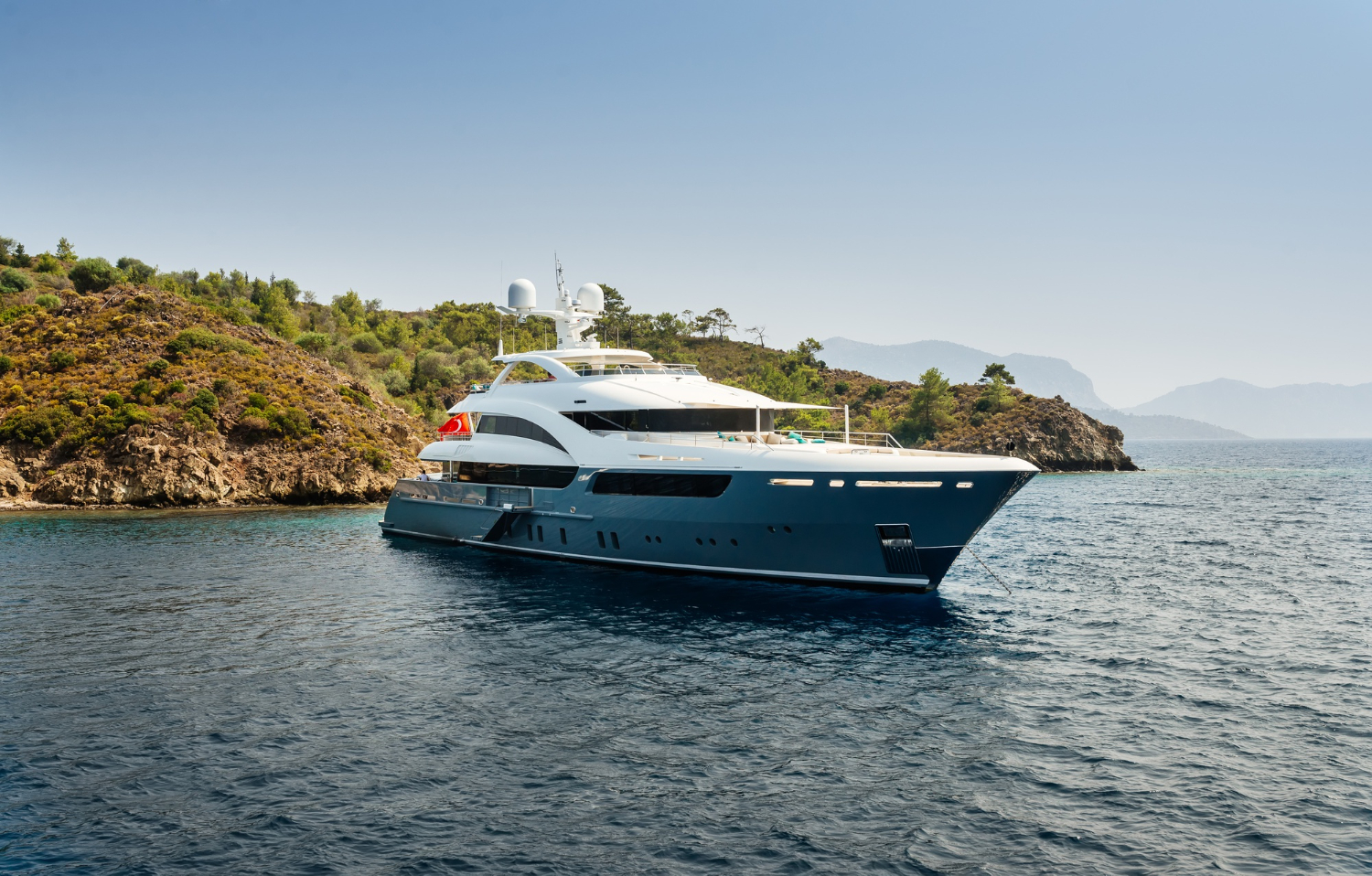Singapore, known for its picturesque skyline and bustling ports, has always been a favorite destination for yacht enthusiasts. In recent years, yacht charters have become increasingly popular as a luxurious way to explore the city’s scenic coastal waters. However, with this growth comes a crucial responsibility – understanding and mitigating the environmental impact of these activities.
This article aims to shed light on the environmental challenges posed by yacht charters in Singapore. We’ll delve into issues like fuel emissions, marine ecosystem disturbances, and waste management, and explore how the industry is evolving towards sustainable practices. As responsible citizens and nature lovers, it’s essential for us to be aware of these impacts and learn about the efforts being made to preserve our beautiful marine environment. So, let’s set sail on a journey of awareness and responsibility, understanding how we can enjoy the luxury of yacht charting while protecting the nature that makes it so appealing.
The Appeal of Yacht Charters in Singapore
Singapore’s charm is not just in its urban landscape but also in its stunning coastal beauty, which has been a major draw for yacht charter enthusiasts. The city’s unique position offers access to tranquil waters and beautiful nearby islands, making it a perfect spot for yacht adventures. Yacht charters offer a blend of luxury and adventure – whether it’s for a family outing, a romantic getaway, or a celebration with friends.
The industry’s growth has been remarkable. Yacht charters provide a unique vantage point to view the city, away from the bustling streets. You can glide past iconic landmarks like Marina Bay Sands and the Merlion, or explore serene spots near Lazarus Island or Pulau Ubin. These experiences cater to both locals looking for a weekend escape and tourists wanting to experience Singapore from a different perspective.
This surge in popularity, however, comes with its set of environmental considerations. As more yachts take to the waters, the impact on the marine environment increases. The next sections of this article will delve into these concerns and explore how we can balance the joy of yacht chartering with the need to protect our natural surroundings.

Environmental Concerns Associated with Yacht Charters
As we enjoy the beauty of Singapore’s waters, it’s crucial to be aware of the environmental footprint yacht charters leave behind. Here are some key concerns:
- Fuel Consumption and Emissions: Yachts, particularly traditional models, rely on diesel fuel, which releases greenhouse gases and pollutants into the air and water. This can contribute to air pollution and adversely affect water quality.
- Impact on Marine Ecosystems: The marine environment around Singapore is home to diverse species. The noise and physical presence of yachts can disturb these ecosystems, potentially affecting the behavior and health of marine life. Anchors, if not used responsibly, can damage delicate coral reefs.
- Waste Disposal Challenges: Yachts generate waste like any other activity. Improper disposal of waste, including plastics and other non-biodegradable materials, can pollute the water and harm marine animals.
- Noise Pollution: The engines and activities on yachts can create significant noise, disrupting the natural habitat of marine wildlife.
Addressing these issues is not just the responsibility of yacht owners and operators; it involves everyone who enjoys these activities.
Sustainable Practices in the Yachting Industry
Thankfully, awareness is growing, and sustainable practices are emerging in the yacht charter industry in Singapore. Here’s how the sector is responding:
- Eco-friendly Fuels and Engines: There’s a growing trend towards using more environmentally friendly fuels and energy-efficient engines. These alternatives reduce emissions and are less harmful to marine life.
- Responsible Waste Management: Many yacht operators are now more conscious of waste management. This includes minimizing waste generation, proper disposal, and even recycling where possible. Educating guests on these practices is also a key step.
- Protecting Marine Ecosystems: Steps are being taken to minimize impact on marine life. This includes using eco-friendly anchors that reduce damage to coral reefs and respecting marine life by avoiding sensitive areas.
- Case Studies of Sustainable Yacht Practices: In Singapore, some yacht charter companies are leading the way in sustainability. They are adopting practices like solar-powered systems, eco-friendly cleaning products, and promoting ‘green’ charter routes that are less disruptive to the environment.
By adopting these practices, the yacht charter industry in Singapore is not only enhancing the sustainability of its operations but also setting an example for other maritime activities. This commitment to the environment is crucial for the longevity of the industry and the preservation of Singapore’s beautiful marine habitats.
Governmental and Regulatory Measures
The Singaporean government plays a vital role in shaping the environmental footprint of the yachting industry. Here are some key initiatives and regulations:
- Environmental Regulations: Singapore has strict regulations regarding marine pollution and waste management. These laws ensure that yacht operators adhere to standards that minimize their environmental impact, such as controlling emissions and responsibly disposing of waste.
- Incentives for Eco-Friendly Practices: To encourage sustainable practices, the government offers incentives for yacht operators who adopt eco-friendly technologies and practices. This includes subsidies or tax breaks for using cleaner fuels, solar panels, or other green technologies.
- Monitoring and Enforcement: The Maritime and Port Authority of Singapore (MPA) plays a crucial role in monitoring maritime activities and ensuring compliance with environmental standards. Regular inspections and strict enforcement help keep the industry in check.
- Promoting Awareness and Education: Governmental agencies often collaborate with environmental groups and industry stakeholders to promote awareness about sustainable yachting practices. This includes educational campaigns and community engagement initiatives.
Through these measures, the government ensures that the joy of yachting can be balanced with the need to protect Singapore’s marine environment.

The Role of Technology in Mitigating Environmental Impact
Technology is playing a key role in making yacht charters more environmentally friendly. Here are some of the technological advancements contributing to this cause:
- Eco-friendly Yacht Design: Innovations in yacht design include the use of lightweight materials, solar panels, and electric engines. These designs reduce fuel consumption and emissions, making yachts more sustainable.
- Digital Solutions for Monitoring: Advanced software and monitoring systems help in tracking fuel consumption and emissions in real time. This allows for better management and reduction of the environmental impact.
- Waste Management Technologies: Innovative waste management solutions, like compactors and biodegradable products, are being used to reduce the volume of waste and its impact on the marine environment.
- Sustainable Navigation: GPS and other navigation technologies enable more efficient routing, reducing fuel consumption and minimizing disturbance to sensitive marine areas.
With these technological advancements, the yacht charter industry in Singapore is not only enhancing its appeal but also ensuring that it grows in harmony with the environment. This is crucial for the sustainable development of the industry and for maintaining Singapore’s reputation as a green and responsible maritime hub.
Consumer Awareness and Responsibility
As consumers, we hold significant power in influencing the sustainability of yacht charters. Here’s how individuals can make a difference:
- Educating Oneself: Before booking a yacht charter, it’s beneficial to learn about the environmental policies and practices of the charter company. Choosing companies that are committed to sustainable practices can make a big impact.
- Eco-friendly Choices: Consumers can opt for yachts that use cleaner fuel, have energy-efficient designs, or employ eco-friendly practices. Even small choices, like minimizing waste during the charter or using reef-friendly sunscreens, contribute to a larger positive impact.
- Advocacy and Feedback: Providing feedback to charter companies about their environmental practices encourages them to improve. Advocating for greener practices in the industry can also drive change.
- Supporting Regulations and Initiatives: By supporting government initiatives and regulations aimed at protecting the environment, consumers can contribute to broader efforts for sustainable yachting.
Each individual’s choice can lead to a cumulative effect that drives the yacht charter industry towards more sustainable practices. By being informed and responsible, consumers can enjoy the beauty of Singapore’s waters in a way that also preserves them for future generations.
The Future of Sustainable Yachting in Singapore
The future of yachting in Singapore looks promising, with sustainability at its core. Here are some trends and predictions:
- Adoption of Green Technologies: We can expect a continued increase in the adoption of green technologies in yachting. This includes more widespread use of electric engines, solar panels, and sustainable materials in yacht construction.
- Singapore as a Leader in Sustainable Yachting: With its forward-thinking policies and innovative approach, Singapore is well-positioned to become a global leader in sustainable yachting practices. This leadership can inspire other maritime nations to follow suit.
- Collaborative Efforts: The future will likely see stronger collaborations between the government, industry players, and environmental groups. These partnerships are essential for creating a sustainable yachting environment that benefits all stakeholders.
- Increased Consumer Demand for Green Options: As public awareness grows, there will likely be an increased demand for eco-friendly yacht charters. This consumer trend will encourage more operators to adopt sustainable practices.
- Regulatory Developments: Continued development and enforcement of environmental regulations will play a key role in shaping the industry. Stricter standards and monitoring will ensure that the environmental impact of yachting is kept to a minimum.
In conclusion, the yacht charter industry in Singapore is on a journey towards greater sustainability. This journey is not just about technology and regulations; it’s about changing mindsets and fostering a culture of responsibility towards the environment. As this industry evolves, it will continue to offer luxurious and enjoyable experiences while preserving the natural beauty and health of Singapore’s marine environment.




